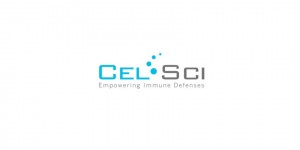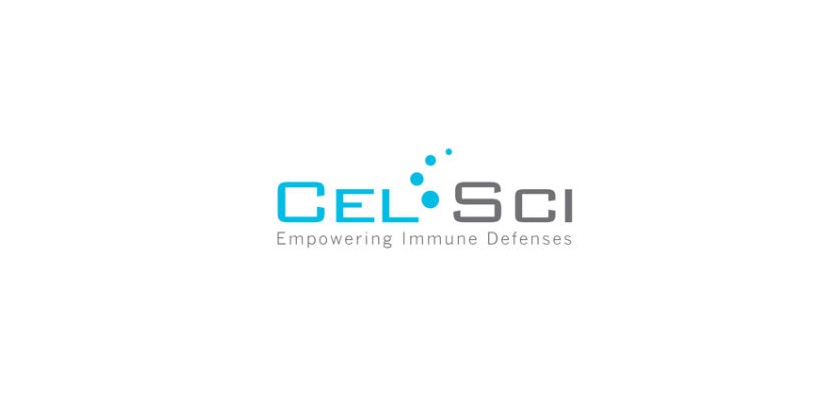 Vienna, Virginia based CEL-SCI Corporation has announced that its global Phase III Head and Neck Cancer clinical trial of its investigational cancer immunotherapy treatment Multikine (Leukocyte Interleukin, Injection) has added Centre Hospitalier Universitaire de Quebec (CHUQ)’s L’Hotel Dieu de Quebec to its growing number of clinical sites in North America.
Vienna, Virginia based CEL-SCI Corporation has announced that its global Phase III Head and Neck Cancer clinical trial of its investigational cancer immunotherapy treatment Multikine (Leukocyte Interleukin, Injection) has added Centre Hospitalier Universitaire de Quebec (CHUQ)’s L’Hotel Dieu de Quebec to its growing number of clinical sites in North America.
CHUQ is a network of three teaching hospitals affiliated with the medical school of Université Laval and several specialized institutions in Quebec City. CEL-SCI plans to activate additional clinical sites for accelerated patient enrollment in Canada.
The Radiation-oncology department of the CHU de Québec is composed of a team of radiation oncologists, oncologic dentists, medical physicists, technologists, nurses, social workers, dietitians, and archivists based at L’Hôtel-Dieu de Québec. The radiation-oncology group is active in research, participating in several national and international multicenter projects from both cooperative groups (such as NCIC and RTOG) and the pharmaceutical industry. The group also participates in projects initiated by the clinicians from the center, involving the participation of residents, physicians, physicists, technologists, nurses, nutritionists and psychologists.
Principal Investigator for CEL-SCIs Phase III trial at CHUQ is Dr. André Fortin, a radiation oncologist and visiting professor. Dr. Fortin, who has extensive expertise in treatment of head and neck, pulmonary, and digestive cancers cancers using radiation therapy, is responsible for the research protocols of radiation therapy for the oncology group at CHUQ.
CEL-SCI’s Multikine
CEL-SCI’s lead investigational therapy Multikine is the first immunotherapeutic agent being developed as a potential first-line treatment for advanced primary head and neck cancer. This form of cancer is a deadly cancer (with only about 50% (or less) survival at 3-5 years from diagnosis) and represents a clear unmet medical need.
Current cancer therapies (surgery followed by radiation, chemotherapy or radio-chemotherapy — as recommended by the NCCN Clinical Practice Guidelines in Oncology; of issued by the National Comprehensive Cancer Network) cannot completely arrest the disease because they are unable to completely remove or kill all of the cancer cells.
Were it to be approved for use following completion of CEL-SCI’s clinical development program, the company says Multikine would be a different kind of therapy in the fight against cancer: one that is designed with the intent to employ our body’s natural ability to fight tumors. because: 1) It is being developed as an off-the-shelf investigational therapy making large scale manufacturing possible; 2) It is being developed with both active and passive immunity, which means that no outside antigens are needed; and 3) it is being studied for administration prior to surgery, radiation and chemotherapy, when the immune system may be more intact and thus with greater potential to be activated.
Multikine is a defined mixture of cytokines (small proteins released by cells that have a specific effect on the interactions between cells). The cytokine mixture includes interleukins, interferons, chemokines, and colony stimulating factors; all of which are molecules which stimulate the body’s healthy immune response. Multikine belongs to a new class of experimental immunotherapy called combination immunotherapy (i.e., it has both active and passive immune activity).
The current recommendation for initial treatment of head and neck cancer patients with advanced disease who are treatment nave (i.e., have received no prior treatment) according to the NCCN guidelines (published by the National Comprehensive Cancer Network) is surgery followed by radiotherapy (or surgery followed by combined radiochemotherapy) — depending on pathology assessment of the resected tumor following surgery.
In CEL-SCI’s ongoing clinical study, patients receiving Multikine have it administered before these other treatments are given. At the completion of CEL-SCI’s clinical development program, if the results indicate that this investigational therapy met its pre-specified endpoints, a Biologics License Application will be prepared and submitted to the FDA by CEL-SCI. CEL-SCI says it intends to propose in that application that Multikine be administered to advanced primary head and neck cancer patients according to the same protocol that is being followed in the Phase III study.
Combination immunotherapy may have the potential to most closely resemble the workings of the natural immune system in the sense that it could work on multiple fronts to potentially elicit or activate a response against cancer.
CEL-SCI notes that first and second interim review of the safety data from the Phase III study of Multikine by an Independent Data Monitoring Committee (IDMC) has raised no safety concerns. The IDMC also indicated that no safety signals were found that would call into question the benefit/risk of continuing the study.
The Multikine Phase III Clinical Study
Multikine has been cleared for a global Phase III trial, and has received a go-ahead from 13 Regulatory Agencies including the U.S. FDA, Canada and the United Kingdom, and Polish, Hungarian, Russian, Ukrainian, Israeli, Indian and Taiwanese regulators. This trial is expected to be the largest head and neck cancer clinical study ever conducted, and is enrolling patients with advanced primary, not yet treated, head and neck cancer. The Phase III open-label, randomized, controlled, multi-center study will be conducted in about 100 centers in 20 countries and three continents, and will enroll approximately 880 subjects (in order to have approximately 784 evaluable subjects) with advanced primary (not yet treated) head and neck cancer worldwide.
The Phase III trial is designed to compare the Multikine investigational therapy combined with the current standard of care therapy (SOC) for head and neck cancer patients (as currently defined by the NCCN Guidelines) vs. the SOC for these patients alone. The current SOC for head and neck cancer — as recommended by the NCCN Clinical Practice Guidelines in Oncology issued by the National Comprehensive Cancer Network – is surgery, followed by radiation, or surgery followed by radiation and concurrent chemotherapy. The study’s objective is to demonstrate a statistically significant improvement in overall survival of enrolled patients who are treated with the Multikine treatment regimen plus Standard of Care (SOC) vs. subjects who are treated with SOC only.
Multikine has not been licensed or approved by the FDA or by any other regulatory agency, but because of its orphan drug status in the US, it currently is anticipated that only one pivotal study is expected to be necessary for Multikine’s approval.
Subject to completion of CEL-SCI’s global Phase III clinical trial and the FDA’s review of the company’s entire data set on this investigational therapy, if FDA were to conclude that the safety and efficacy of this investigational therapy is established, CEL-SCI says early-phase clinical data is encouraging in suggesting the potential that approximately 60-66% (2/3) of head and neck cancer patients who present with advanced primary disease could be candidates for this investigational therapy.
This study is also thought to be the first Phase III study in the world in which immunotherapy is given to patients first, i.e. prior to receiving any conventional treatment for cancer, including surgery, radiation and/or chemotherapy. This could be shown to be important because conventional therapy may weaken the immune system, and may compromise the potential effect of immunotherapy. Because Multikine is given before conventional cancer therapy when the immune system may be more intact, CEL-SCI believes the possibility exists for it to have a greater potential likelihood of activating an anti-tumor immune response. This potential is one of the clinical aspects being evaluated in the ongoing global Phase III clinical trial.
Objectives: As set forth in the study protocol, the primary objective of this Phase III trial is to evaluate the efficacy of peri-tumoral and peri-lymphatic injection of the investigational Multikine therapy given prior to Standard of Care (SOC) (as currently defined by the NCCN Guidelines). This will be evaluated based upon measurements of overall survival. The secondary objectives are to evaluate the effects of the investigational Multikine therapy on the cumulative incidence of local-regional control, progression-free survival, tumor histopathology, and quality of life, while also seeking to confirm Multikine safety. Tumor response is a tertiary outcome in this immunotherapy study.
Additional clinical indications for Multikine which are being investigated include cervical dysplasia in HIV/HPV co-infected women, and the treatment of peri-anal warts in HIV/HPV co-infected men and women. A Phase I trial of the former indication has been completed at the University of Maryland. The latter indication is now in a Phase I trial in conjunction with the U.S. Navy under a CRADA (Cooperative Research and Development Agreement).
In October 2013, CEL-SCI announced that it had signed a CRADA (Cooperative Research and Development Agreement) with the U.S. Naval Medical Center, San Diego, to develop Multikine as a potential treatment for HIV/HPV co-infected men and women with peri-anal warts. The company also announced that it entered into two new co-development agreements with Ergomed to further clinically develop Multikine for cervical dysplasia/neoplasia in women who are co-infected with HIV and HPV and for peri-anal warts in men and women who are co-infected with HIV and HPV.
CEL-SCI is also developing its LEAPS technology for the treatment of pandemic influenza and as a potential therapeutic vaccine against rheumatoid arthritis. The Company has recently received a Phase I SBIR Grant from the NIH to develop LEAPS as a potential treatment for RA with Rush University researchers. The Company has operations in Vienna, Virginia, and in/near Baltimore, Maryland.
For more information, visit:
http://www.cel-sci.com
Sources:
CEL-SCI Corporation
Centre Hospitalier Universitaire de Quebec (CHUQ)


